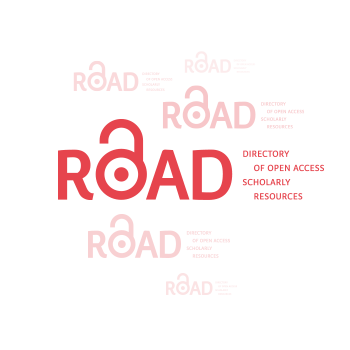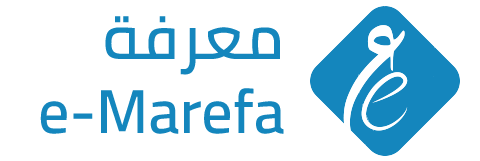Fostering Flexible Minds: The Effect of Probing Questions in Enhancing Divergent Thinking in Geography
DOI:
https://doi.org/10.59994/pau.2024.2.45Keywords:
Divergent Thinking, Probing Questions, Geography Education, 21st Century SkillsAbstract
Developing students' divergent thinking abilities is an educational imperative for nurturing 21st century skills. Geography education lends itself well to embedding divergent thinking pedagogies by examining interconnected human-environment systems through varied spatial and cultural lenses. This study experimentally evaluated the efficacy of integrating structured probing question interventions to foster divergent thinking in secondary-level geography education. By using the experimental design, participants were 60 students divided into an experimental group receiving probing question training over nine sessions, and a control group receiving standard geography instruction. The experimental group demonstrated significantly higher divergent thinking scores across all components compared to controls at post-test. These improvements were maintained at follow-up, underscoring the durability of the probing intervention's effects. Findings empirically validate structured probing techniques as a promising pedagogical approach for purposefully cultivating flexible reasoning, creative ideation, and innovative geographic problem-solving capacities. This study contributes an empirically-grounded divergent thinking instructional framework that can empower students' abilities as engaged global citizens adept at grappling with the complexities of our interconnected world. This study pioneers an empirically-grounded instructional framework for purposefully cultivating divergent thinking skills through structured probing question within geography education. The findings contribute to the scholarly discourse on evidence-based strategies for nurturing essential 21st century competencies across the curriculum.
Downloads
References
Abu Raya, M., Ogunyemi, A., & Rankin, K. (2023). The neurobiology of openness as a personality trait. Frontiers in Neurology, 14, Article 1235345. https://doi.org/10.3389/fneur.2023.1235345
Acar, S., & Runco, M. (2012). Creative abilities: Divergent thinking. In M. Mumford (Ed.), Handbook of organizational creativity (pp. 115-139). Academic Press. https://doi.org/10.1016/B978-0-12-374714-3.00006-9
Bicer, A., Lee, Y., Capraro, R., Capraro, M. M., Barroso, L., & Rugh, M. (2019, October 16-19). Examining the effects of STEM PBL on students’ divergent thinking attitudes related to creative problem solving [paper presentation]. In 2019 IEEE Frontiers in Education Conference (FIE) (pp. 1-6). IEEE. https://doi.org/10.1109/FIE43999.2019.9028431
Buranova, M., & Rakhmonova, G. (2024, April). Improving students' ability to think critically and analytically. In Conference Proceedings: Fostering Your Research Spirit (pp. 72-74). https://doi.org/10.2024/gw3fzf27
Cummins, J. (2009). Transformative multiliteracies pedagogy: School-based strategies for closing the achievement gap. Multiple voices for ethnically diverse exceptional learners, 11(2), 38-56. https://doi.org/10.56829/muvo.11.2.2420352213232u47
Duckor, B., & Holmberg, C. (2019). Exploring how to model formative assessment trajectories of posing‐pausing‐probing practices: Toward a teacher learning progressions framework for the study of novice teachers. Journal of Educational Measurement, 56(4), 836-890. https://doi.org/10.1111/jedm.12239
Finke, R. A., Ward, T. B., & Smith, S. M. (1992). Creative cognition: Theory, research, and applications. MIT Press.
Fletcher, A., & Benveniste, M. (2022). A new method for training creativity: narrative as an alternative to divergent thinking. Annals of the New York Academy of Sciences, 1512(1), 29-45. https://doi.org/10.1111/nyas.14763
Gardenia, N., Herman, T., Rahadyan, A., & Dahlan, T. (2020, July). Application of problem-based learning approaches with probing-prompting techniques to improve students' adaptive reasoning capabilities. In Proceedings of the 7th Mathematics, Science, and Computer Science Education International Seminar, Bandung, West Java, Indonesia (p. 138). European Alliance for Innovation. https://doi.org/10.4108/eai.12-10-2019.2296525
Guilford, J. (1968). Intelligence Has Three Facets: There are numerous intellectual abilities, but they fall neatly into a rational system. Science, 160(3828), 615-620. https://doi.org/10.1126/science.160.3828.615
Hua, Y., & Yang, Y. (2024). Early childhood preservice teachers’ beliefs of creativity, creative individuals and creative environment: Perspectives from China. Thinking Skills and Creativity, 51, Article 101441. https://doi.org/10.1016/j.tsc.2023.101441
Jacobson, M., & Spiro, R. (1995). Hypertext learning environments, cognitive flexibility, and the transfer of complex knowledge: An empirical investigation. Journal of educational computing research, 12(4), 301-333. https://doi.org/10.2190/4T1B-HBP0-3F7E-J4PN
Kalargiros, E., & Manning, M. (2015). Divergent thinking and brainstorming in perspective: Implications for organization change and innovation. In A. Shani, & D. Noumair (Eds.), Research in organizational change and development (Vol. 23, pp. 293-327). Emerald Group Publishing Limited. https://doi.org/10.1108/S0897-301620150000023007
King, A. (2007). Scripting collaborative learning processes: A cognitive perspective. In F. Fischer, I. Kollar, H. Mandl, J. Haake (Eds), Scripting computer-supported collaborative learning: Cognitive, computational and educational perspectives (pp. 13-37). Springer US. https://doi.org/10.1007/978-0-387-36949-5_2
Koivisto, M., & Grassini, S. (2023). Best humans still outperform artificial intelligence in a creative divergent thinking task. Scientific reports, 13(1), Article 13601. https://doi.org/10.1038/s41598-023-40858-3
Krathwohl, D. (2002). A revision of Bloom's taxonomy: An overview. Theory into practice, 41(4), 212-218. https://doi.org/10.1207/s15430421tip4104_2
Lai, C. K., Haim, E., Aschauer, W., Haim, K., & Beaty, R. (2024). Fostering creativity in science education reshapes semantic memory. University Park. Retrieved from https://osf.io/cmrhv/download
Lenzner, T., & Neuert, C. (2017). Pretesting survey questions via web probing–Does it produce similar results to face-to-face cognitive interviewing? Survey Practice, 10(4), 1-13. https://doi.org/10.29115/SP-2017-0020
Lucas, B., & Spencer, E. (2017). Teaching Creative Thinking: Developing learners who generate ideas and can think critically (Pedagogy for a Changing World series). Crown House Publishing Ltd.
Mansour, N. (2024). Students’ and facilitators’ experiences with synchronous and asynchronous online dialogic discussions and e-facilitation in understanding the Nature of Science. Education and Information Technologies, 1-33. https://doi.org/10.1007/s10639-024-12473-w
Metwaly, S., Fernández-Castilla, B., Kyndt, E., Van den Noortgate, W., & Barbot, B. (2021). Does the fourth-grade slump in creativity actually exist? A meta-analysis of the development of divergent thinking in school-age children and adolescents. Educational Psychology Review, 33, 275-298. https://doi.org/10.1007/s10648-020-09547-9
National Council for the Social Studies (NCSS). (2016). A vision of powerful teaching and learning in the social studies. Social Education 80(3), 180–182. Retrieved from https://www.socialstudies.org/
Neuert, C., & Lenzner, T. (2021). Effects of the number of open-ended probing questions on response quality in cognitive online pretests. Social Science Computer Review, 39(3), 456-468. https://doi.org/10.1177/0894439319866397
Noroozi, O., Weinberger, A., Biemans, H., Mulder, M., & Chizari, M. (2013). Facilitating argumentative knowledge construction through a transactive discussion script in CSCL. Computers & Education, 61, 59-76. https://doi.org/10.1016/j.compedu.2012.08.013
Oliveira, A. (2010). Improving teacher questioning in science inquiry discussions through professional development. Journal of Research in Science Teaching: The Official Journal of the National Association for Research in Science Teaching, 47(4), 422-453. https://doi.org/10.1002/tea.20345
Ozuem, W., & Lancaster, G. (2015). Questioning: A path to student learning experience. Education+ Training, 57(5), 474-491. https://doi.org/10.1108/ET-04-2014-0039
Partnership for 21st Century Skills. (2007). The intellectual and policy foundations of the 21st century skills framework. Author.
Partnership for 21st Century Skills. (2009). Framework for 21st century learning. Author.
Paul, R., & Elder, L. (2007). Critical thinking: The art of Socratic questioning. Journal of developmental education, 31(1), 36-37.
Quick, K., & Sandfort, J. (2014). Learning to facilitate deliberation: practicing the art of hosting. Critical Policy Studies, 8(3), 300-322. https://doi.org/10.1080/19460171.2014.912959
Rahayuningsih, S., Mardliyah, A. A., & Rijanto, A. (2023). Peningkatan Kompetensi Guru Dan Membangun Budaya Belajar Berkelanjutan Melalui Pembentukan Komunitas Belajar. AMMA: Jurnal Pengabdian Masyarakat, 2(8: September), 934-940.
Roberts, J., Headleand, C., & Ritsos, P. (2017). Thoughts, Ideas, Problems and Solutions. In J. Roberts, C. Headleand, P. Ritsos (Eds.), Five Design-Sheets: Creative Design and Sketching for Computing and Visualisation (pp. 43-84). Springer. https://doi.org/10.1007/978-3-319-55627-7_3
Runco, M. (2010). Divergent thinking, creativity, and ideation. In J. Kaufman & R. Sternberg (Eds.), The Cambridge handbook of creativity (pp. 413–446). Cambridge University Press. https://doi.org/10.1017/CBO9780511763205.026
Ryan, R., & Deci, E. (2000). Self-determination theory and the facilitation of intrinsic motivation, social development, and well-being. American Psychologist, 55(1), 68–78. https://doi.org/10.1037/0003-066X.55.1.68
Singer, J., Marx, R., Krajcik, J., & Clay Chambers, J. (2000). Constructing extended inquiry projects: Curriculum materials for science education reform. Educational Psychologist, 35(3), 165-178. https://doi.org/10.1207/S15326985EP3503_3
Spiro, R., Feltovich, P., Coulson, R. L., Jacobson, M., Durgunoglu, A., Ravlin, S., & Jehng, J. (1992). Knowledge Acquisition for Application: Cognitive Flexibility and Transfer of Training in IllI-Structured Domains. Retrieved from https://apps.dtic.mil/sti/citations/tr/ADA250147
Sun, M., Wang, M., & Wegerif, R. (2020). Effects of divergent thinking training on students’ scientific creativity: The impact of individual creative potential and domain knowledge. Thinking Skills and Creativity, 37, Article 100682. https://doi.org/10.1016/j.tsc.2020.100682
Vygotsky, L., & Cole, M. (1978). Mind in society: Development of higher psychological processes. Harvard university press.
Vynohradova, V., Bila, I., Kostyuchenko, O., Oborska, S., & Dykhnych, L. (2021). Creativity, Readiness for Changes and Tolerance for Ambiguity. BRAIN. Broad Research in Artificial Intelligence and Neuroscience, 12(3), 44-63. https://doi.org/10.18662/brain/12.3/219
Welch, S. (2022). Critical Inquiry: Creative Movement and Embodied Cognition. In Choreography as Embodied Critical Inquiry: Embodied Cognition and Creative Movement (pp. 35-55). Springer International Publishing. https://doi.org/10.1007/978-3-030-93495-8_2
Wigert, B. (2013). The influence of divergent and convergent problem construction processes on creative problem solving (Publication No. 3604561) [Doctoral dissertation, University of Nebraska at Omaha].
Xia, T., Kang, M., Chen, M., Ouyang, J., & Hu, F. (2021). Design training and creativity: Students develop stronger divergent but not convergent thinking. Frontiers in psychology, 12, Article 695002. https://doi.org/10.3389/fpsyg.2021.695002
Yelland, N., Cope, B., & Kalantzis, M. (2008). Learning by design: Creating pedagogical frameworks for knowledge building in the twenty‐first century. Asia‐Pacific Journal of Teacher Education, 36(3), 197-213. https://doi.org/10.1080/13598660802232597
Downloads
Published
How to Cite
Issue
Section
License
Copyright (c) 2024 Journal of Palestine Ahliya University for Research and Studies

This work is licensed under a Creative Commons Attribution 4.0 International License.
مجلة جامعة فلسطين الاهلية للبحوث والدراسات تعتمد رخصة نَسب المُصنَّف 4.0 دولي (CC BY 4.0)











